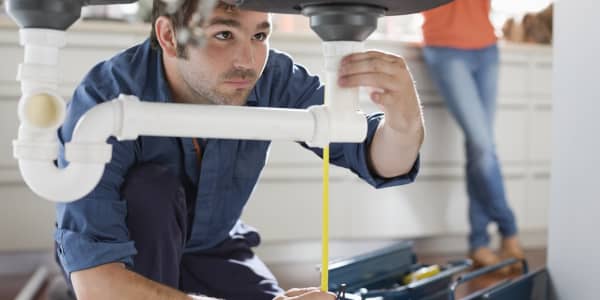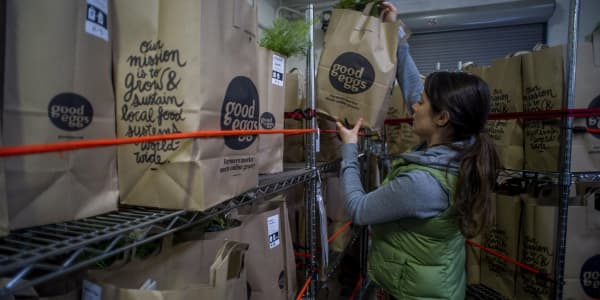Looking for a great place to start a business?
Then check out California's Riverside-San Bernardino metro area. It emerged as the best small-business city in America in an annual ranking conducted by Biz2Credit, a leading online lending platform for small business based in New York City.
The area, often dubbed the "inland empire," situated directly east of Los Angeles with a population of more than 4 million, is becoming a haven for entrepreneurs. Meanwhile, San Jose, which topped the list last year, plunged to No. 18. Although the city in Silicon Valley is still a hotbed of technological innovation, the high cost of doing business there has hurt its ranking.
The annual Best Small Business Cities in America Study ranking of 25 cities is based on a weighted average of data on Biz2Credit's customers across the country. It looks at the health of small businesses in each metro area, the rate of small-business creation and the economic ecosystem for entrepreneurs, including the cost of doing business, tax climate and local talent pool.
Biz2Credit analyzed 12,000 businesses with fewer than 250 employees from across the country. These firms were in operation for more than a year and had less than $10 million in annual revenues.
The Riverside-San Bernardino area shot to the top spot after scoring in the top five in average credit score, average annual revenue, number of employees and the BizAnalyzer score, which takes into account local economic factors, such as the cost of doing business and tax rate. It also finished in the top 10 for its thriving start-up culture. The average age of businesses in the area is 34 months.
Read MoreWhy the presidential candidates are trumpeting small business
Top 10 cities for small business
- Riverside-San Bernardino, California
- Chicago
- New York Metro
- Charlotte, North Carolina
- Las Vegas
- San Francisco-Oakland, California
- Miami-Fort Lauderdale, Florida
- Los Angeles
- Houston
- Dallas-Fort Worth, Texas
(Source: Biz2Credit)
The Riverside-San Bernardino area is a hub for IT, advanced manufacturing, food processing, health and medicine and professional services. The ecosystem for growth companies is strong, since it has such resources as incubators, accelerators and co-working spaces, as well as a Shop Riverside campaign to promote local businesses.
According to the survey, small businesses in Riverside-San Bernardino had average annual revenues of $1,400,960, ahead of the No. 2 city, New York, where average annual revenues were $1,269,859. San Francisco-Oakland placed third, with average annual revenues of $671,000.
"Technology is bringing in younger people and more immigrants to this metro area," explained Rohit Arora, CEO of Biz2Credit. "Riverside, California, has a pretty big immigrant population." It includes immigrants from Southeast Asia, Central America and the Middle East.
Nathan Sklar, a health-care entrepreneur, recently expanded his business operations from New York City to Riverside, California. In Manhattan he runs three entities: Comprehensive Kids Developmental School, a not-for-profit school for children with autism; Grand Street Medicine and Rehab, an outpatient facility for occupational physical therapy; and Comprehensive Evaluations, which provides evaluation services for children. Together they employ about 250 people.
He opened Comprehensive Certified Home Health Services in Riverside, California, five to six years ago. It is a home-care agency that provides nursing services, home health aides and related services, employing about 50 people. Sklar branched out into California during a moratorium on home-care licenses in New York. California had no moratorium.
"We've been growing at a steady pace," he said, adding that between his New York and California operations, his ventures bring in combined revenue that range from $15 million to $25 million annually.
Talent war heats up
Placing No. 2 on the list is Chicago. In the Windy City, an abundant technology talent pool has helped drive the growth of entrepreneurship, according to Ted Devine, CEO of Insureon, a small-business insurance provider based there that has grown to 183 employees since it was founded in 2000.
"The quality of the technology resources we have is incredibly high," said Devine, pointing to the city's 10 academic computer science programs, eight coding boot camps and abundance of business incubators.
While overhead for small businesses is not low in Chicago, it is not as steep as in other major cities. "To start a business, the square-footage cost is basically half of what it is in New York or San Francisco," said Devine. Chicago's total occupancy costs ranged from $27 to $50 in 2014, according to CBRE's Prime Office Occupancy Costs study for (2014), compared to $83 to $121 for New York and $68 to $108 for San Francisco
No market is perfect, of course. It can take small businesses more than a month to get a business license in Chicago because of bureaucracy, according to Jeff Carter, manager at West Loop Ventures, a Chicago-based venture fund focused on seed and series A investments.
Read MoreAre entrepreneurs born or made?
But that hasn't kept more scalable firms from taking root. "I don't see a vibrant small-business mom-and-pop community, but I see a very vibrant technology start-up community the rest of the world really doesn't see," said Carter.
The Big Apple's allure
With its tech hub, Silicon Alley, thriving, New York moved up the list to third place, from seventh last year. California had a total of six cities among the top 25, while Texas and Florida had three each.
Indianapolis, which made the list last year, dropped out of top 25 rankings this year. "The backlash over the state's recently passed, controversial religious freedom bill is unlikely to help Indianapolis' standing next year," Arora said.
Although Detroit just emerged from bankruptcy protection at the end of 2014, the Motor City also made the list, in 15th place. Young entrepreneurs like Brian Rudolph see plenty of opportunity as the city's leaders try to chart a new course.
In August, Rudolph launched Banza, which makes pasta from chickpeas, with his brother Scott Rudolph at Rebirth House, a formerly rundown home in Detroit he shares with other members of the local start-up community. Since then, two other partners, Avery Hairston and Chris Beisswenger, have joined them.
"I'm working out of a formerly foreclosed home that my friends fixed up," said Brian. "Now it is a fantastic working environment."
For Banza, one key to success has been the support of Venture for America, an organization based in New York City that is working to revitalize Detroit and other cities across the U.S. Hairston was selected as a 2014 fellow in its program, which provides both entrepreneurial training and seed funding. It also didn't hurt that the business appeared on a CNBC reality show called "Restaurant Startup."
Banza's pasta is now in more than 800 stores, such as ShopRite and the Midwestern chain Meijer. Manufacturing its pasta in the state, Banza has already created 17 jobs, Brian said.
"I wanted to start a technology company," he explained. "I realized if I positioned it correctly, we could be just as ambitious as a technology company in the way that we grow. Everything we've done we've modeled after Chobani." For instance, Banza is positioning itself as a mainstream product in grocery stores by going after the appropriate shelf space.
"They changed the way people think about yogurt. The way Chobani changed upstate New York and created so many jobs, we'd like to do the same in Detroit."
—By Elaine Pofeldt, special to CNBC.com





